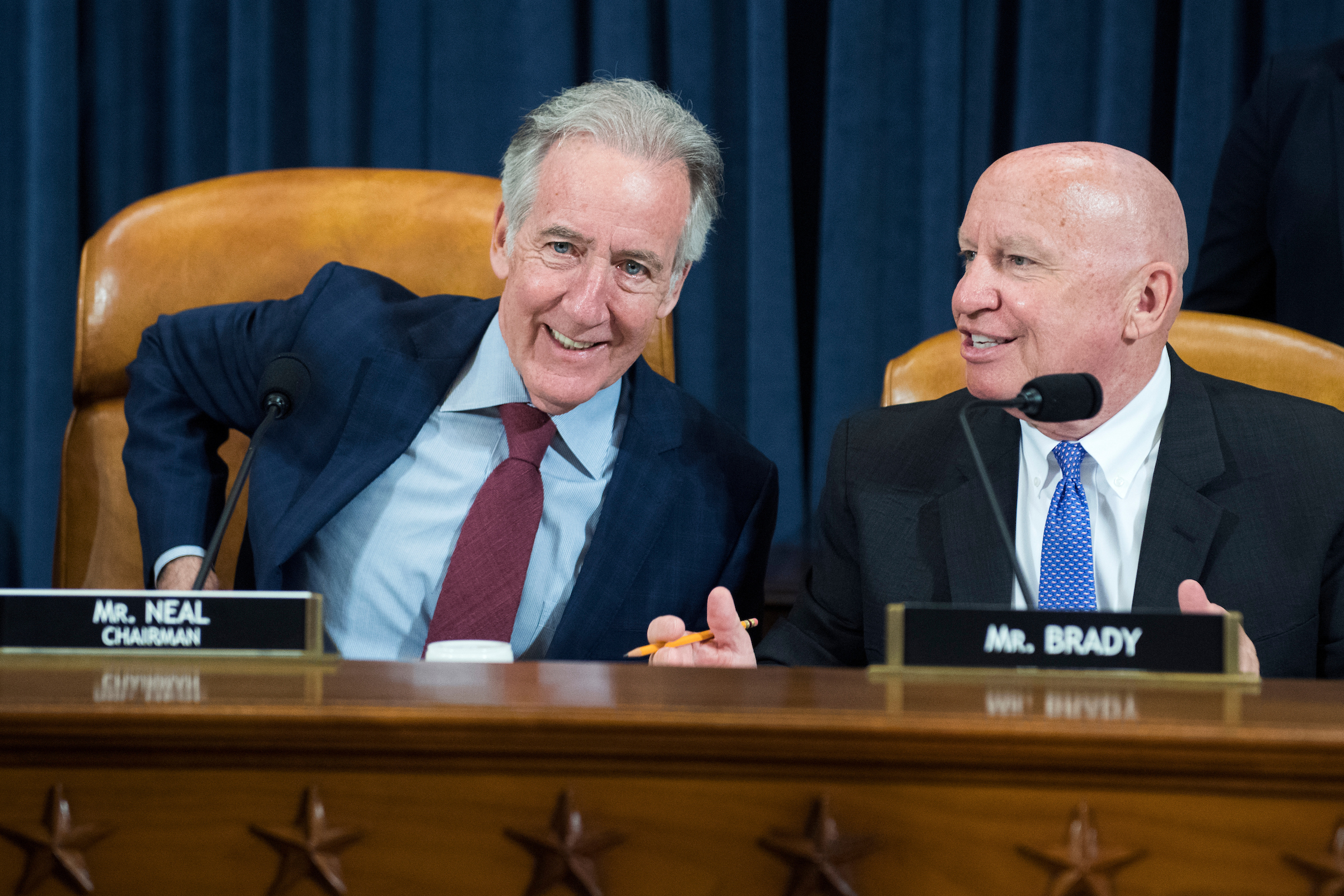Ways and Means offers its own plan on surprise medical bills
New proposal could complicate efforts to enact a rival bill before year’s end

The House Ways and Means Committee released its own proposal Wednesday for ending surprise medical bills, potentially complicating an effort by some lawmakers to include a rival proposal in a year-end spending bill.
Surprise out-of-network medical bills are unpopular among the public, both parties and President Donald Trump. But lawmakers disagree about the details of how to pay doctors and other medical providers when a patient unexpectedly gets out-of-network care at an inpatient hospital or in other unanticipated scenarios.
[Deal banning surprise medical bills also ups tobacco purchase age to 21]
The Ways and Means Committee plan appears to resolve payment disputes by allowing health care providers and insurers to enter into arbitration, a method favored by hospitals and most doctors’ groups. The committee’s leaders called on lawmakers to slow down the process, while the leaders of the House Energy and Commerce Committee have been pushing for action within the next two weeks.
“There are multiple good-faith proposals from other Committees, but given our jurisdiction, it is crucial that we get this right,” Ways and Means Chairman Richard E. Neal, D-Mass., and ranking member Rep. Kevin Brady, R-Texas, said in a joint statement. “The House, Senate, and Administration all need to stay at the table and debate these ideas as we decide the best, most patient-focused path forward. We look forward to working together with our Committee Members and having this be one of the first things we consider in the new year.”
The statement comes after the House Energy and Commerce Committee announced a different agreement earlier this week with Senate Health, Education, Labor and Pensions Chairman Lamar Alexander, R-Tenn. That plan would set a median in-network benchmark rate for providers, and let providers and insurers use arbitration when the benchmark rate is above $750.
An Energy and Commerce spokesperson noted that the committee has already approved an earlier version of the proposal and that the recent deal has support on both sides of the Capitol and was backed by the White House earlier this week.
The spokesperson said in a statement that the deal “is the best way to get this done and signed into law so we can finally protect patients.”
So far, no top party leader in either chamber has endorsed the House-Senate committee deal, which several lawmakers have said is holding up movement on the agreement. Senate Minority Leader Charles E. Schumer, D-N.Y., said in response to a CQ Roll Call question Tuesday that there were “many disagreements” on the policy, although he also said, “We have to do something about surprise billing.”
Turf war
Doctors’ groups have complained that the House-Senate committee proposal could negatively affect patients’ access to care.
Lawmakers who negotiated the deal pushed back on that, though.
“We think we’ve found a pretty good balance here for providers and hospitals and all,” said Rep. Greg Walden of Oregon, ranking Republican on the Energy and Commerce Committee.
[Air ambulance services face scrutiny over surprise billing issues]
Sen. Maggie Hassan, D-N.H., who pushed for the measure to include an arbitration option, told CQ Roll Call she hoped a “turf war” in the House wouldn’t prevent action on the issue this year.
“Right now, I am just hoping that jurisdictional battle in the House doesn’t keep us from protecting patients from surprise medical bills,” she said.
Hassan is urging lawmakers to take up the proposal.
Before the Ways and Means panel released its outline, lawmakers said talks have been ongoing all week to finalize the details of the Energy and Commerce and HELP deal. Rep. Larry Bucshon, R-Ind., said one possibility being discussed would be to allow the “batching” of claims so that providers could group a set of claims together to qualify for arbitration.
Sen. Bill Cassidy, R-La., said his team had previously proposed allowing that policy as a way to reduce administrative costs and “help the provider whose individual charge would never go to $750.”
Lawmakers are facing a deadline this week to determine whether legislation to end surprise medical bills will move before the end of the year, Alexander said Wednesday.
“That decision would have to be made by the end of this week,” Alexander said. “I don’t think Republicans and Democrats want to go home and say the only thing we can do is impeachment and judges. I think it’s in both parties’ and the country’s interest to show we can lower health care costs.”





